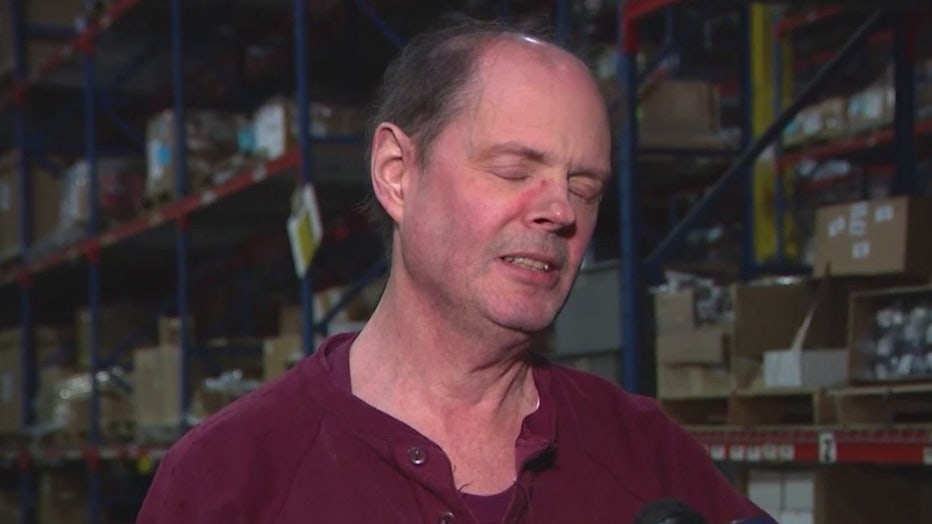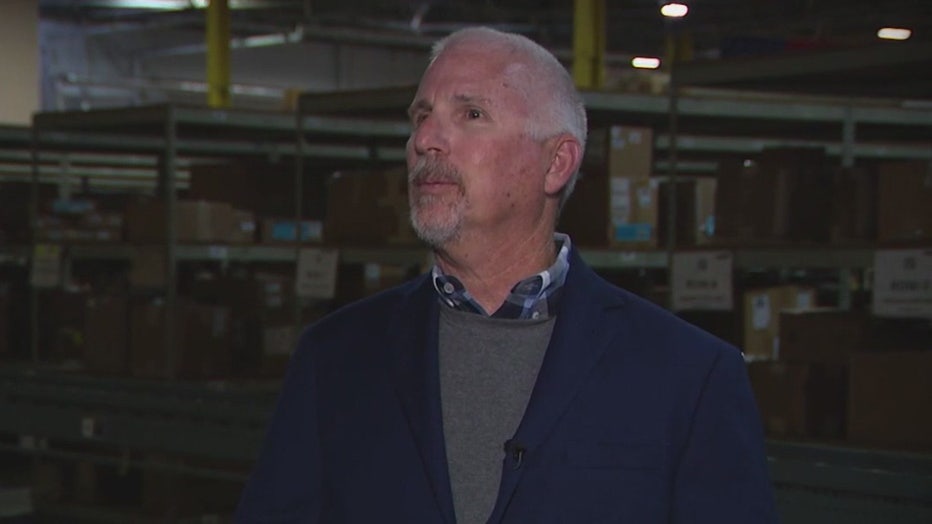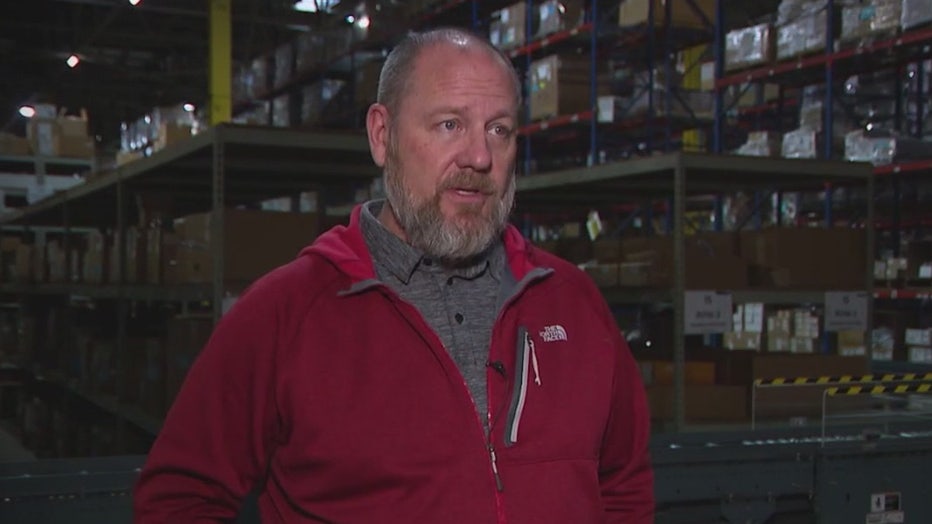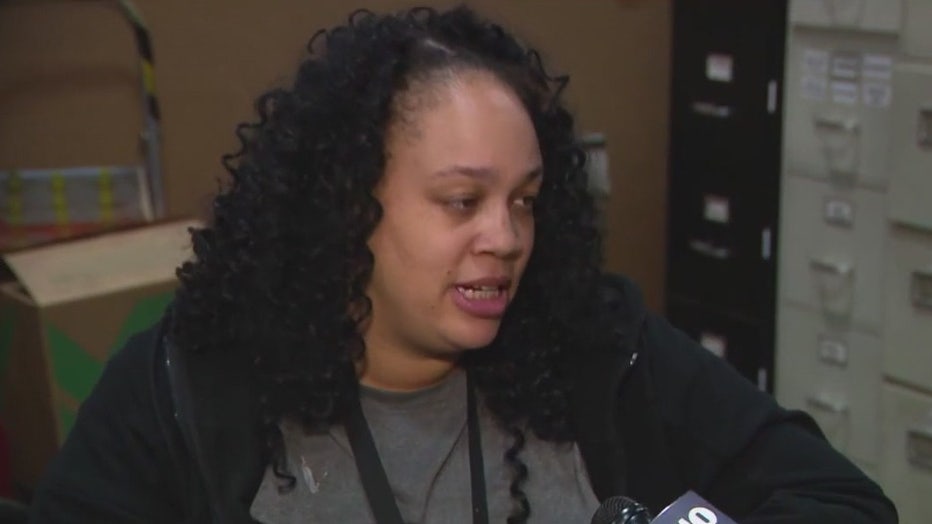AZ Industries for the Blind helping visually impaired employees succeed

AIB helps visually impaired workers succeed
There's a warehouse in Phoenix with a nearly 100% customer satisfaction rate. Each order is meticulously pulled, packed and shipped by employees who are either blind or impaired. It's called Arizona Industries for the Blind and the secret to its success is treating those employees with respect and focusing on what they can do. FOX 10's Anita Roman has more.
PHOENIX - Stephan Wagner is a materials handler at Arizona Industries for the Blind (AIB). His main responsibility is to pack orders.
Wagner, like many of his coworkers, is totally blind or vision impaired, but just as successful as the employees who have their sight.
What they're saying:
"It's a combination of trial and error, plus alot of training," he said. "I was born with some eye issues and then throughout the years, it got worse. Throughout the time, throughout the years, I've lost more and more vision.

Stephan Wagner
Bill Hazlet has been with the company for 16 years. He locates and picks products for orders. Bill says the training and technology helps everything.
"How are you going to survive if you don't have that, you know," he said. "You need a positive outlook, and you can't let things get in your way. You just have to find a way around them.
Finding a way is the mantra that all employees follow.
Spokesperson David Steinmetz was diagnosed with a hereditary retinol disease known as retinitis pigmentosa (RP). He too, over time, lost his sight, but not his will or desire to accomplish big things.

David Steinmetz
"This is just something we have to do to be able to perform or do the job, put food on the table, earn a paycheck," he said. "I don't know that's any different than anybody else that says we want to thrive, we want to be able to support ourselves and our family, then that means we have to work, and we put our pant leg on one foot at a time and do what we have to do."
"On a daily basis, we do everything that a third-party logistics warehouse does," Chris Moriell explained. "We do inbound, outbound inventory. We do everything from picking orders, quality control. Logistics is anything that a facility can do to bring in goods and then ship those goods out for multiple customers, so our main customer is the Department of Defense. So we deal a lot with the U.S. military, all branches, including Space Force, which people forget about, and they also have commercial customers as well, and we have employees backfill orders for, as well."
When Moriell took a job as distribution services manager at AIB, the first thing he didn't notice was a lack in productivity by any employee.

Chris Moriell
"I hate to put it into a group like this, but a lot of people believe that if you are visually impaired or blind, that you are limited in what you can do. What I found when I first came here was I was shocked because I was walking around, and I was with the CEO of this company. I said, ‘Where are the blind people?’ And they're like, ‘They are everywhere around you.’ I couldn't tell," Moriell said.
Grip tape has been placed on the floor down the aisles to help blind and vision-impaired employees navigate. Font on computer screens is enlarged so those who have some level of vision can read orders. There's a special system in place to help employees locate items.
"One is a system called ‘Talk Man.' This is a voice directed, voice recognition system, so our material handlers will wear a headset, they will have a scanner, and they wirelessly connect to our house management system, and it directs them to go to a location all verbally, and then they scan a bar code to verify that they are in the right spot," Steimetz said.
AIB was established in 1952. Today, 48 employees who might not have a job elsewhere are not just gainfully employed but thriving, like Ryaunah Heckard, who says AIB has cultivated an attitude of gratitude.
"You're often told about the things that you are not going to be able to do because of your vision, and so when you come around people who are making the most of life, it really helps you," she said. "My vision is just one part of me, one very small part, and there's other things, and in today's society, there's really no excuse."

Ryanunah Heckard

